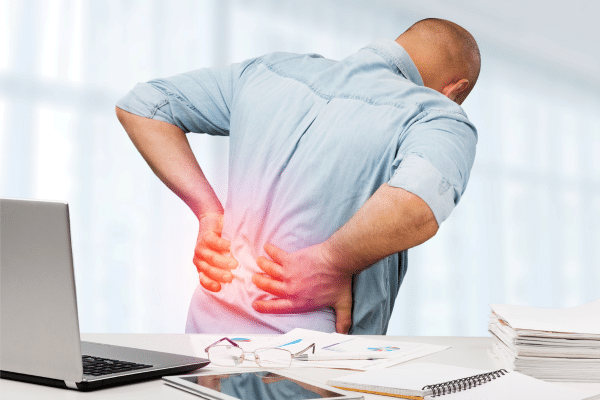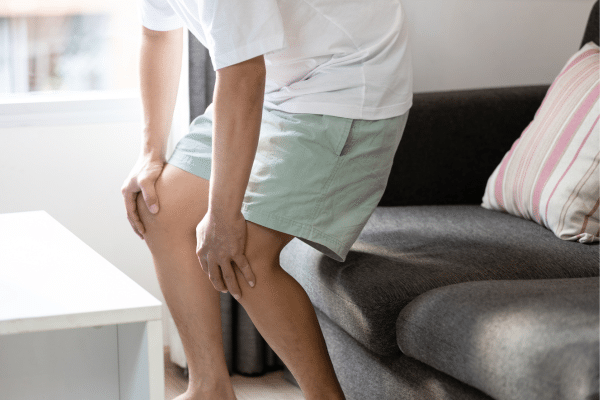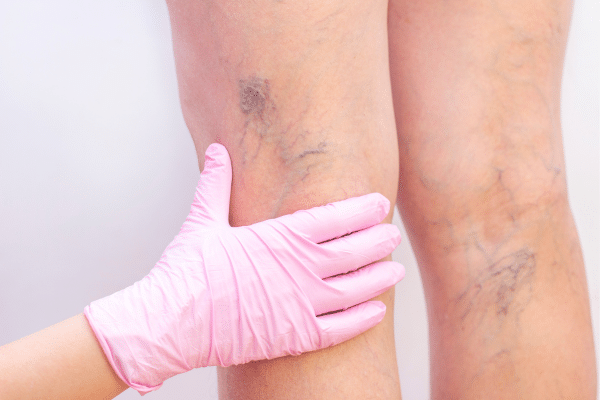In recent years, a sedentary lifestyle has become increasingly common, primarily due to technological advancements and the nature of modern work environments. This shift towards prolonged periods of sitting is raising alarms among health professionals, as it correlates with a variety of health risks. From musculoskeletal disorders to cardiovascular problems, the implications of continuous sitting are far-reaching. This article delves into the multitude of health hazards associated with sitting for extended periods, aiming to shed light on this silent issue and provide actionable solutions.
Contents
Lower Back Pain

Prolonged sitting often leads to poor posture, which exerts excessive pressure on the spine, particularly the lower back. This unnatural alignment can strain the discs in the spine, leading to discomfort and chronic pain over time. Lower back pain is not just a fleeting inconvenience; it can significantly hinder daily activities and diminish the quality of life. Moreover, the lack of movement restricts blood flow to the spinal tissues, depriving them of essential nutrients and the ability to recover from the wear and tear of daily activities.
Studies consistently demonstrate a strong link between extended sitting and the development of chronic back issues. The static posture associated with sitting for long periods can result in the weakening of the abdominal and back muscles, which are crucial for supporting the spine. Over time, this weakening can lead to serious conditions such as herniated discs or even permanent changes in the spine’s curvature. Recognizing the potential for long-term damage, it’s crucial to understand the mechanisms behind these issues to foster preventative measures and promote a healthier lifestyle.
Weight Gain And Obesity

The correlation between a sedentary lifestyle and weight gain is a critical concern in today’s society. Sitting for prolonged periods leads to a significant reduction in the number of calories burned, as the body’s metabolic rate drops. This decrease in physical activity not only contributes to weight gain but also sets the stage for obesity and related health complications. The insidious nature of weight gain associated with sitting is often underestimated, as the gradual increase in body weight can go unnoticed until it becomes a significant health issue.
Metabolic consequences stemming from extended sitting periods are profound. The body’s ability to regulate blood sugar, break down body fat, and control cholesterol levels is compromised, leading to an increased risk of metabolic syndrome. This syndrome is a cluster of conditions, including increased blood pressure, high blood sugar, excess body fat around the waist, and abnormal cholesterol levels, which collectively increase the risk of heart disease, stroke, and type 2 diabetes. Understanding these metabolic impacts is essential in addressing the broader health risks associated with prolonged sitting.
Cardiovascular Diseases

The sedentary nature of sitting for extended periods has a detrimental impact on heart health. Research indicates a clear association between prolonged sitting and an increased risk of cardiovascular diseases. This relationship is due in part to the decreased blood flow and reduced burning of fatty acids, leading to higher cholesterol levels and greater accumulation of fats in the blood vessels. Over time, these factors contribute significantly to the development of conditions such as hypertension, coronary artery disease, and heart failure, marking sedentary behavior as a silent contributor to cardiovascular morbidity.
In addition to the direct effects on heart health, extended sitting also indirectly influences other factors associated with cardiovascular diseases. The lack of physical activity leads to weight gain and obesity, conditions closely linked to heart problems. Furthermore, the diminished circulation while sitting for long hours can exacerbate other conditions, such as diabetes, which further compounds the risk of developing cardiovascular diseases. Awareness of these risks is paramount, as heart health is central to overall well-being and longevity.
Muscle Degeneration And Weakness

Muscles are designed for movement, and prolonged inactivity leads to their degeneration, particularly in the lower body. Sitting for extended periods results in a lack of muscle use, especially in the legs and hips, leading to weakening and wasting over time. This muscle atrophy not only reduces physical strength and endurance but also increases the risk of injury due to the decreased stability and support for the skeletal structure. The implications of muscle degeneration extend beyond mere physical appearance, affecting overall mobility and quality of life.
The consequences of muscle weakness are far-reaching, impacting balance, coordination, and the body’s overall ability to perform daily tasks. As muscles weaken, individuals may experience increased difficulty in activities that were previously effortless. This decreased physical capability can lead to a sedentary cycle, where reduced muscle strength further limits physical activity, exacerbating muscle degeneration. Breaking this cycle is essential, requiring conscious efforts to incorporate regular movement and exercise into daily routines.
Mental Health Concerns

The implications of prolonged sitting extend beyond physical health, significantly affecting mental well-being. Studies have drawn connections between sedentary behavior and an increased risk of mental health issues, including anxiety and depression. The lack of physical activity can lead to a reduction in the production of endorphins, the body’s natural mood elevators. This decrease can result in feelings of low mood and a lack of energy, contributing to the development of mental health concerns.
Furthermore, a sedentary lifestyle can lead to increased feelings of isolation and decreased social interaction, factors known to negatively impact mental health. The absence of physical activity often coincides with reduced exposure to natural light and less engagement in activities that provide mental stimulation and social contact. Acknowledging the profound impact of prolonged sitting on mental health is crucial in promoting a more active lifestyle, not only for physical health but also for psychological well-being.
Increased Risk Of Diabetes

Sitting for long periods has a marked impact on the body’s ability to manage blood sugar levels, leading to an increased risk of type 2 diabetes. The inactivity associated with prolonged sitting leads to decreased insulin sensitivity, a condition where the body’s cells do not respond effectively to insulin. This inefficiency hinders the process of converting glucose into energy, resulting in higher blood sugar levels. Over time, this can lead to the development of type 2 diabetes, a chronic condition with significant health implications.
Research has shown a direct correlation between the amount of time spent sitting and the risk of developing diabetes. The sedentary behavior disrupts metabolic functions, including the regulation of blood sugar, making it a critical factor in the onset and progression of diabetes. Understanding this connection is pivotal in adopting a proactive approach to reducing the risk of diabetes through regular physical activity and breaking the pattern of prolonged sitting.
Varicose Veins And Deep Vein Thrombosis

Extended periods of sitting can lead to circulatory issues, such as varicose veins and deep vein thrombosis (DVT). Varicose veins occur when prolonged sitting causes blood to pool in the legs, leading to increased pressure on the veins. This pressure can cause the veins to become enlarged, twisted, and visible under the skin. Apart from being a cosmetic concern, varicose veins can also cause discomfort and lead to more serious conditions if left untreated.
Deep vein thrombosis is a more severe condition where blood clots form in the deep veins of the body, usually in the legs. Prolonged immobility, such as sitting for long hours, is a significant risk factor for DVT. These clots can become life-threatening if they break loose and travel to the lungs, causing a pulmonary embolism. Recognizing the signs and understanding the preventive measures, such as taking regular breaks to move and stretch, is crucial in mitigating the risks associated with prolonged sitting.
The Bottom Line
Prolonged sitting poses a myriad of health risks that extend far beyond the immediate discomfort of a stiff back or sore muscles. From the alarming rise in cardiovascular diseases and diabetes to the subtle yet profound impacts on mental health and muscle integrity, the consequences of a sedentary lifestyle are profound and far-reaching. Recognizing these risks is the first step towards a healthier life. Implementing practical changes, such as regular movement breaks, standing desks, and incorporating physical activity into daily routines, can profoundly counteract the negative effects of prolonged sitting, promoting a healthier, more vibrant life.


